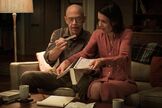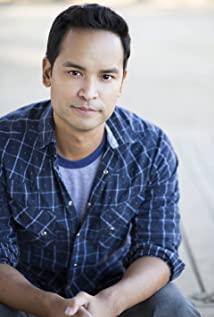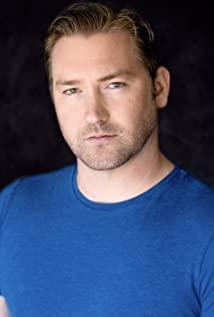I'm not at all empty or boring lately because I'm watching Relative Universe. The plot is tight and the dialogue is slow.
Howard A keeps repeating that I am not him, I will not be him, and kills in the last blink of an eye. Howard B scoffed at the fact that A sent flowers to read love poems to his wife in the hospital bed every day, and then finally bought flowers and began to read the poems aloud. Which one is the real self, and what kind of decision did you force yourself to make or what decision you didn't make in the first place, and finally became who you are now? But what did you see, what did you hear, what did you experience, and what made you make such a decision? For Howard, it is obviously the same core, and the years have made them more and more separated. If it is the pattern of time and space that affects the direction of people, then what is affecting the pattern of time and space as a whole?
I doubt you, despise you, deny you, but I can't help being you, because I am you. These connotations are too philosophical for me to think about.
Science fiction dramas are always like this, discussing the facts and confusions of the current reality under the guise of science fiction. We know the answer, but we don't know the answer. From the show's point of view. It seems that we have a choice. Howard A chose to turn a blind eye to his wife's infidelity and continue to maintain the marriage. This is his decision. However, he does not know that the reason why he has not been promoted for 30 years has always been his wife's obstruction. Howard B decided to divorce after knowing the truth. Yes, he had enough reasons and basis to choose l to leave, and A also had enough theoretical support to continue to insist. Decades later, looking back at the paths the two have traveled, each has its own gains and losses, and it is difficult to define which is the so-called correct one. Perhaps for us in real life, there is no need to be too entangled, because any choice is wrong, and any choice is right. You don't get everything and you don't lose everything.
In addition, one of the characters that touched me was Clare, who has been working hard to become Clare B in another world that everyone has been waiting for. She feels that nothing belongs to her, even a habitual action, a simple answer. , we must try our best to imitate, and change to many people today, even if there is no duplicate copy, how many people are doing themselves? How many people can feel free? And what's the fundamental difference between the school that trained her to cultivate tool-person spies and many schools now?
Clare's marriage is also a helpless tragedy, but not many people's marriages deserve to be truly praised, and I believe those who have experienced it can speak for themselves. And her sentence: I despired you, but I went through it. Really contains everything.
Maybe this is the real world, because even if there is no other parallel world, you are experiencing the same predicament and pain as the characters in the play. Fate is like an invisible pusher behind you. You delusionally choose, work hard, and analyze. Control it, change it, because you lose either way.
View more about Counterpart reviews











